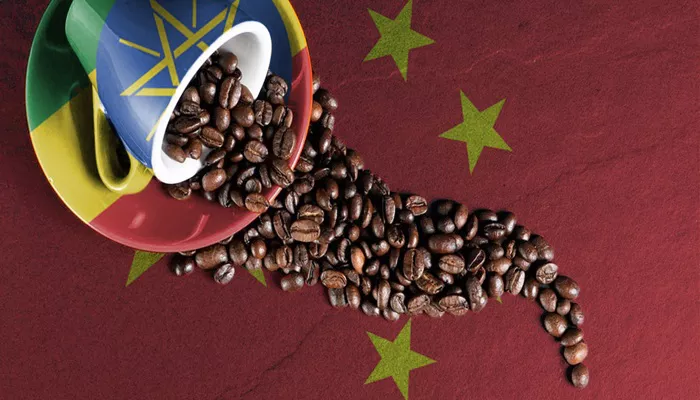The China International Import Expo (CIIE) has increasingly focused on fostering South-South cooperation. This year, Ethiopian coffee has made its way to the Chinese market, thanks to the efforts of Ruth Wondosen Tesfaye, an Ethiopian businesswoman with strong ties to China. Cao Chufeng reports on her journey and the impact of the CIIE.
“Try our authentic Ethiopian coffee, made from Ethiopian beans by an Ethiopian,” says Ruth, as she encourages visitors to taste the rich flavors of her homeland’s coffee. Ruth, who studied in China, has deep connections with the country.
“I studied Chinese for a year, then I pursued a business administration degree at Nanjing University,” she explains.
Now, Ruth works for a company dedicated to importing Ethiopian coffee to China. Since the fourth session of the CIIE, her company has participated in the event, and she believes it has been crucial in boosting their business.
“Has the Expo helped your company’s business?” a reporter asks.
“Absolutely. It’s all about marketing and promotion. At the CIIE, people can taste our coffee, buy it, and do business with us. It’s an excellent way to promote our coffee and brand,” Ruth responds.
Ruth’s company now has a pavilion and office at Hongqiao 365, an extension of the CIIE, which allows businesses to continue promoting and selling products even between expo sessions. The low cost of this space is especially beneficial for small and medium-sized enterprises (SMEs) and companies from developing nations.
Freesia Zhu, Deputy General Manager of the Shanghai Hongqiao International Import Commodity Exhibition and Trade, explains, “Exhibitors don’t have to worry about upfront costs like entry fees or barcodes. We offer a comprehensive service, including centralized purchasing, checkout, sales assistance, and warehousing. If their products perform well, they can grow. If not, the cost of exiting is low.”
One of the CIIE’s goals is to encourage South-South cooperation, and this year the event is supporting least developed countries (LDCs) by offering 120 free pavilions. The Expo’s commitment to these nations extends beyond the event itself.
Wu Zhengping, Deputy Director-General of the CIIE Bureau, adds, “Just yesterday, I spoke with the head of the United Nations Office for South-South Cooperation. We are planning concrete steps to enhance our collaboration next year.”
As part of China’s broader efforts to support LDCs, starting this December, China will implement a tariff-free policy for all products from these countries. The CIIE aligns with this initiative, offering an important platform for global trade and cooperation.
Related Topics:
- What Is the Prediction for Coffee Production?
- What Countries Are Fair Trade Coffee?
- What Is Fair Trade Coffee Mean?


